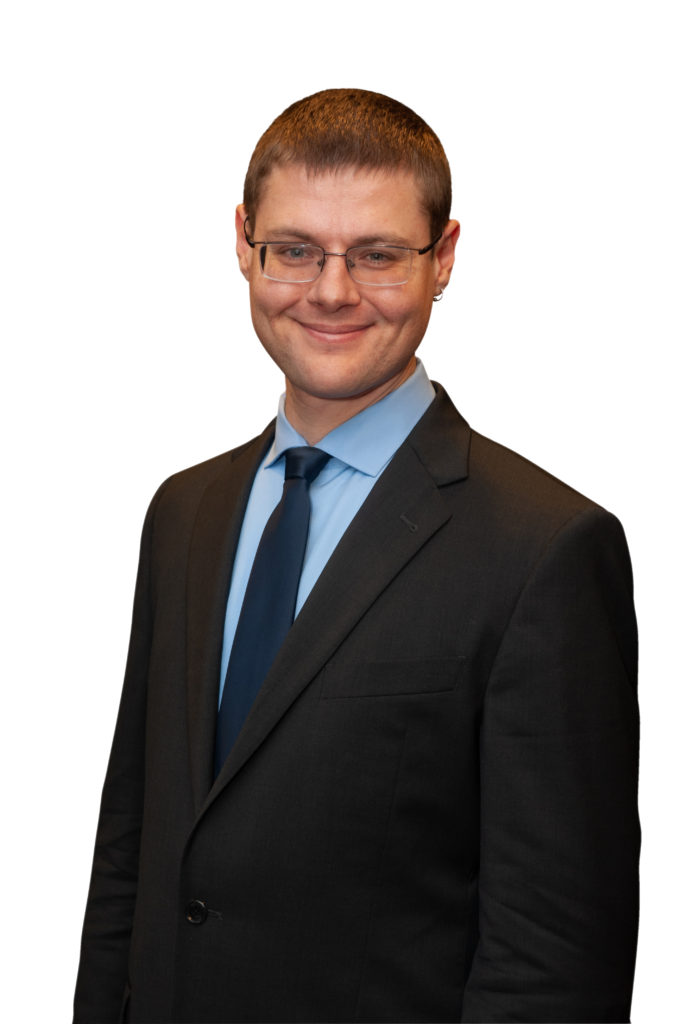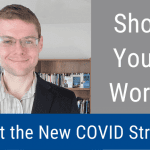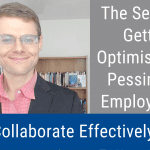Startup founders can defeat mental health challenges and avoid burnout by paying attention to their mental health, seeking help, and standing up to pressure from major investors and Board members. That’s the key take-away message of this episode of the Wise Decision Maker Show, which describes the dangers of mental health challenges for startup founders.
Video: “The Dangers of Mental Health Challenges for Startup Founders”
Podcast: “The Dangers of Mental Health Challenges for Startup Founders”
Links Mentioned in Videocast and Podcast
- Here’s the article on The Dangers of Mental Health Challenges for Startup Founders
- The book Never Go With Your Gut: How Pioneering Leaders Make the Best Decisions and Avoid Business Disasters is available here
- You are welcome to register for the free Wise Decision Maker Course
Transcript
Hello, everyone, and welcome to another episode of the Wise Decision Maker Show, where we help you make the wisest and most profitable decisions. What I’d like to talk about today is the dangers of mental health challenges for startup founders. Now, when you think about startup founders, you probably think about glorious people, if you’re not a startup founder yourself glorious people making bajillions of dollars from their startups, how many startup founders are actually not making bajillions of dollars, but even those who are, are often in a situation of mental health challenges, and I remember working for as a consultant and a coach for a startup that was valued over a billion dollars $1.4 billion. its founder had a lot of challenges in terms of mental health, burnout, stress, anxiety issues. And of course, most startup founders are running organizations that are quite a bit smaller than this. I started up my own consulting coaching and training company called Disaster Avoidance Experts three years ago, and it has six people right now. So I’m a startup founder in that regard. And it’s not making a bajillion dollars. So that most startup founders are in my position. And I work as a coach, and a consultant for many startups. So I understand the kind of challenges mental health challenges that folks experience who are startup founders, and they don’t get nearly enough support acknowledgement for these mental health challenges that are really needed, they really need the support, but they don’t really get it and it’s sad, and the causes of these mental health challenges. So let’s talk about the causes. And then the way to address this, the causes of these mental health challenges come from really long workweeks. I mean, when I started my organization, I was doing 70 to 80 hours a day easily just starting up. And I’ve moved closer to work life balance, what more in the 48 hour range right now per week. But most startup founders are working very, very long hours. And for a very long time for several years, if not longer, they feel that they need to put all their energy into the startup. And that causes them a lot of trouble and disbalance, anxiety, depression are often common, they have to make many decisions, and making many decisions causes anxiety, fatigue, depression, anger, frustration, uncertainty, really negative feelings that are under a lot of emotional pressure. They’re doing a lot of emotional labor, they’re supporting their people who are in the startup, they’re trying to convince investors to invest into the startup that can try to convince employees to work for pretty low wages where the wages are made up of stocks in the startup. So percentages in the startup, that’s the shares, you know, these are hard things to do. And so they are doing a lot of emotional labor. They’re making a lot of decisions, complex decisions daily. And so there’s a lot of pressure on them, the pressure is especially to raise funding while managing daily operations. So this combination of raising funding, the biggest stress I’ve seen for startup founders, actually in raising funding, when I’m working with them, as a coach, that our advisory board is pressuring them to raise funds, their board of directors, pressuring them to raise funds. And often they really want to focus on doing the thing, their daily operations are a big challenge for them. A big, big problem in addressing these mental health challenges is the lack of healthy discussions around these mental health challenges. There’s a stigma in intrapreneurial circles and investor circles around you talk around startup founders talking about mental health. I mean, you mentioned mental health to an investor for a startup found there. And you mentioned it to an angel investor or mid stage investor. And they will tend to back away from that startup founder, because, you know, the investment that they make isn’t to the startup founder as much as the idea of the startup, and they don’t feel that they should invest into someone who has mental health challenges. That is a very bad idea. Of course, very bad preconception prevents startup founders from talking about their mental health challenges and getting the support they need. And of course, fellow entrepreneurs are also going to have stigma toward other startup founders who have mental health challenges. And this is a big, big problem. Now, you sometimes hear it kind of implicitly referenced in a conversation about founder burnout for a startup founder burnout, or work life balance, but it’s not really directly addressed mental health challenges, anxiety, depression, all of these sorts of things, things that you can certainly address through various interventions by yourself, but it’s great if you get professional help therapists, psychiatrists, psychiatric medication, therapy for these sorts of issues. Use now to address these mental health challenges. So talking about discussing them, you want to model transparency about mental illness. So to model my transparency, I have an anxiety adjustment disorder that I gained. As a result of putting in so much time and effort into starting up my organization, I felt a lot of anxiety, a lot of stress, a lot of pressure. And it contributed to me developing an anxiety adjustment disorder. And that has to do with me feeling anxiety. And the way it manifests is very strong physical fatigue. So I went to have a therapist get some therapeutic help, I also take psychiatric medications daily. So that’s been really helpful. So you want to model transparency around mental illness. If you do not currently suffer from mental illness, which is wonderful. You should encourage others to talk about it on the team, on the team within the startup, if you’re an investor in a startup, you should talk to them. And tell them it’s okay to talk about this totally fine. If you are board member, if you’re influencing a startup in some key way, model transparency, and then learn how to support troubled colleagues, you know, you don’t need to be a therapist or psychiatrist to learn skills for how to support folks with mental health challenges that are easy tips, easy tools, easy techniques that you can use to address these. And there’s a blog that’s going to be in the show notes that you can use to address these challenges. So talk about much more with these details, and then find the stigma around mental illness but making it modeling transparency and talk about the stigma, say, hey, there’s a stigma, just like I’m talking about right now. And it’s a bad thing. It’s a problem. Here’s why it’s a problem. People don’t talk about this, then they burn out, then the whole startup crashes. And I’ve actually seen that. And once I participated in a situation where I as a coach encouraged the startup founder to talk about his mental illness, his anxiety as a result of the board, pressuring him to fundraise, fundraise, and he was getting more and more anxious and frustrated and depressed as a result of this. But he didn’t want to reveal this to the board, because he thought that the board would move away from him and would either seek to have him removed, you know, fire him or something like that. Because I mean, he had some shares, but not the mature large majority of the shares. So they would remove him or the investors wouldn’t invest money. And, you know, he was near the breaking point, when they finally convinced them to talk to the board about it. And the board was very understanding, they were supportive, they said, okay, you know, your focus on operations, we’ll do more of the fundraising. So they’re totally understanding, but it was kind of too late already, he was already so burned out, he just couldn’t last. And you know, he left the nation, sold his shares, you know, a couple of months, left the organization, and the organization found there after him. So that was not a good situation, because the team was kind of not the same without him. And he, there was no driving spirit and to blame the board for not catching the sometimes there was a lot of conflict and tensions, he didn’t want to be in that situation, fight the stigma, gain transparency about the situation. And I kind of blame myself in part for that situation from encouraging him stronger to go earlier to the board and discuss this topic. That was a bad situation, you don’t want to be in that situation. So these are the kinds of issues that mental health challenges for startup founders cause. So you want to again, be aware of the stigma around this and model transparency, have healthy discussions, get professional help, of course. So do all these things, learn how to support other folks in startups with mental health challenges as well. And that’s how you can address mental health challenges for startup founders. All right. I hope you’ve benefited from this episode of the Wise Decision Maker Show. If you’ve liked it, please click like, and please follow us and whatever when you hear us or watch this, we have both a videocast version and a podcast version, both are going to be in the show notes. So follow us on YouTube on iTunes, spreaker, wherever you check this out. Now, I also would like you to leave a review and a comment and or a comment on the show to let us know what you thought of it, what you thought was good, what you thought was bad, we always seek to improve. We’d love to hear your feedback. It’s incredibly helpful for us in our goal to constantly improve what we do. Now, if you are curious about this topic, as I mentioned, there’s going to be a blog with much more information about this in the show notes. Check out my book on this topic called the blind spots between us how to overcome unconscious cognitive bias and build better relationships and that talks about relationship building including mental health issues for startup founders and all sorts of professional settings. It’s going to be a disasteravoidanceexperts.com/blindspots which is linked in the show notes. And also check out my other book for me: good decisions in startups situations and all sorts of other situations. future proofing your company called never go with your gut. How pioneering leaders make the best decisions and avoid business disasters and disaster avoidance experts.com forward slash nethercott and linked in the show notes. And finally, here’s a great free resource, the wise decision maker course it’s an eight video based module course free course. And the first module is on assessment on dangerous judgment matters in the workplace, which you’ll find very helpful, I think. So make sure you make the wisest decisions possible by getting this course and using the assessment to gain awareness of your own dangerous judgment better, it’s going to be a disaster avoidance experts.com forward slash subscribe, and also linked in the show notes. All right, I’ll see you next time and in the meantime, the wisest and most profitable decisions to you, my friends.
Transcribed by https://otter.ai
Originally Published at Disaster Avoidance Experts February 23, 2021
Bio: Dr. Gleb Tsipursky is an internationally-renowned thought leader in future-proofing and addressing cognitive biases. He serves as the CEO of the boutique future-proofing consultancy Disaster Avoidance Experts, which specializes in helping forward-looking leaders avoid dangerous threats and missed opportunities. A best-selling author, he wrote Never Go With Your Gut: How Pioneering Leaders Make the Best Decisions and Avoid Business Disasters (Career Press, 2019), The Blindspots Between Us: How to Overcome Unconscious Cognitive Bias and Build Better Relationships (New Harbinger, 2020), and Resilience: Adapt and Plan for the New Abnormal of the COVID-19 Coronavirus Pandemic (Changemakers Books, 2020). He has over 550 articles and 450 interviews in USA Today, Inc. Magazine, CBS News, Time, Business Insider, Government Executive, Fortune, The Chronicle of Philanthropy, Fast Company, and elsewhere. His expertise comes from over 20 years of consulting, coaching, and speaking and training on change management, decision making, and risk management strategy. It also comes from over 15 years in academia as a behavioral scientist, including 7 as a professor at Ohio State University. Contact him at Gleb[at]DisasterAvoidanceExperts[dot]com, LinkedIn, Twitter @gleb_tsipursky, Instagram @dr_gleb_tsipursky, Medium @dr_gleb_tsipursky, and register for his free Wise Decision Maker Course.















